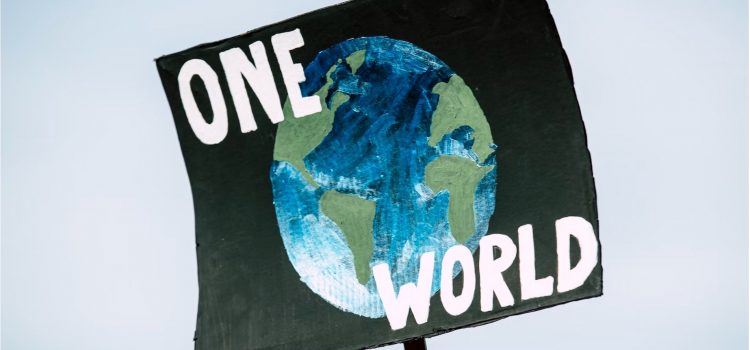
This is a free excerpt from one of Shortform’s Articles. We give you all the important information you need to know about current events and more.
Don't miss out on the whole story. Sign up for a free trial here .
Why are climate change policies important? Which recent policies did the U.S. pass? What domestic and global impact will they have?
The U.S. Senate has broken through its infamous gridlock to deliver two major pieces of climate change legislation. With the passing of the Inflation Reduction Act and ratifying of the Kigali Amendment, millions of people could now be protected from some of the worst threats of global warming.
Read on to learn about these two major climate change policies and their potential impact on the world.
The 2 Major Policies Delivered by Congress
Organizations ranging from NASA to the World Bank agree that climate change is one of the most pressing issues of our time: Warming temperatures around the world will cause devastating storms, floods, and food shortages, on top of potentially deadly heat in many parts of the world. Even conservative predictions say that, over the next few decades, climate change will drive tens of millions of people from their homes, including millions of U.S. citizens. To stave off the worst effects of climate change, scientists are pushing for bold climate change policies and coordinated efforts to reduce greenhouse gas emissions around the world. However, even though large areas of the U.S. are threatened by rising temperatures and rising waters, the government has, for some time, seemed unable or unwilling to take action.
Two recent pieces of legislation—the Inflation Reduction Act and the Kigali Amendment to the Montreal Protocol—have finally broken that pattern of inaction, and some say it may be a turning point in the global fight against climate change. This article will briefly examine the U.S. government’s habitual gridlock, then discuss these two surprising climate change policies and what they might mean for the U.S. and the world as a whole.
What Changed?
As noted, passing two major pieces of environmental legislation is a departure from the United State’s famously gridlocked legislature. However, these outcomes may not be as surprising as they appear.
For one thing, pro-climate policies are much more popular among American voters—both Democratic and Republican—than many people may realize. Polls have shown that anywhere from 66% to 80% of Americans support climate change policies, including half of Republicans and practically all Democrats.
For another, conservatives (from either party) have historically opposed climate change policy based on the belief that government intervention will hurt businesses, drive up prices, and weaken the United State’s position in the global market. However, projections show that incentives from the Inflation Reduction Act will create over a million new jobs—so, far from hurting the economy, the IRA will give the U.S. an economic boost.
Furthermore, the reduction in air pollution from switching to green energy will have both personal and economic benefits: fewer people getting sick and needing costly treatments, as well as fewer working age people dying from pollution-related illnesses. As for the Kigali Amendment, the Biden administration had already passed regulations severely restricting the production and use of HFCs, meaning that ratifying this agreement was mostly symbolic of the United State’s commitment to fighting climate change. In other words, any damage that the amendment would do to businesses had already been done, so there was no economic reason to oppose it.
Why Does This Matter?
Climate change policies are more necessary than ever as scientists say rising temperatures brought about by trapped greenhouse gases are already making parts of the world less hospitable to human life. The southwestern US is seeing drought conditions leading to reduced food production that are expected to worsen over time. Increased evaporation and a hotter atmosphere are leading to more extreme storms all over the world, such as 2012’s devastating Hurricane Sandy. In some places, the heat itself can be lethal: Recent heat waves in India and Europe led to thousands of deaths from heatstroke. Hotter temperatures are melting glaciers, causing rising sea levels, which threaten to flood coastal areas. Naturally, as parts of the world become less habitable, those who can are fleeing to safer places.
Millions of people around the world will soon find their homes threatened by wildfires, floods, and drought as a result of climate change, according to scientific models. One study from the Columbia Climate School projected that climate change will uproot anywhere from 48 million to 216 million people by 2050, while the Institute for Economics and Peace (IEP) predicted up to 1.2 billion climate refugees worldwide by 2050—that’s about 15% of the current world population. In the US alone, we’re likely to see millions of people fleeing the South and Southwest, moving toward New England and the Pacific Northwest to escape the deadly heat. These changes have already begun: For example, Australia is being asked to take in as many as 3,000 Pacific Islanders every year, and tens of millions have already been forced to flee their homes in Southeast Asia and Africa.
Many of the “climate migration hotspots”—areas identified by experts as likely to either lose or receive a large number of people—are areas already struggling with overpopulation, poverty, and stressed infrastructure systems: The three regions of Sub-Saharan Africa, South Asia, and Latin America alone are expected to see more than 140 million people moving within their borders. This will likely exacerbate existing problems in education, employment, and health care, as well as crime and long-simmering political tensions between disparate groups of people. In the US, droughts, wildfires, and flooding will likely drive people away from hot or coastal areas. Some regional officials—for example, in Florida—have already acknowledged they won’t be able to defend certain roads from rising sea levels.
How Will the Policies Help?
As of 2020, the U.S. was the second biggest producer of greenhouse gases in the world. Therefore, these two climate change policies—the Inflation Reduction Act and the ratification of the Kigali Amendment—could be major turning points not just for the country, but for the planet.
A statement from the Biden administration said that, thanks to the Inflation Reduction Act, the U.S. is now on track for net zero greenhouse gas emissions by 2050; meanwhile, scientists estimate that the Kigali Amendment could prevent as much as 0.5°C (about 1°F) of global warming by the end of the century.
In short, this cooperation between Democrats and Republicans could protect millions of people’s lives and livelihoods around the world, while at the same time creating new jobs for Americans and strengthening the U.S. economy.

Want to fast-track your learning? With Shortform, you’ll gain insights you won't find anywhere else .
Here's what you’ll get when you sign up for Shortform :
- Complicated ideas explained in simple and concise ways
- Smart analysis that connects what you’re reading to other key concepts
- Writing with zero fluff because we know how important your time is






